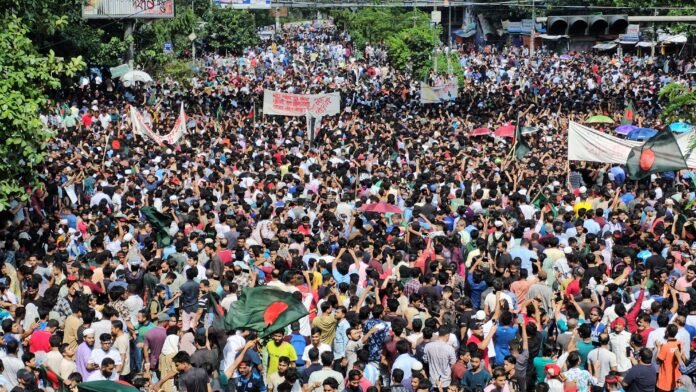Bangladesh’s politics are in the middle of a big transformation after last year’s July uprising, which ended 15 years of Sheikh Hasina’s rule. The move sparked a nationwide debate over how the country should be governed.
In 2024, the National Consensus Commission (NCC) was set up to write a new “July Charter.” The commission’s goal is to create a set of reforms that will shape a fresh constitution and rebuild democratic institutions. The Charter is meant to bring together all political parties for a long‑term agreement.
The first step was the July Declaration on August 5, the anniversary of the uprising. Led by chief adviser Muhammad Yunus, the Declaration listed 28 points that criticize the Awami League, the party that has been in power for decades. Critics said the declaration was more an attack on the ruling party than a constructive plan for change.
After the Declaration, the NCC began talks with 33 parties in March. In the first round, they agreed on 62 of 166 proposals, mainly about reforming the judiciary and the anti‑corruption commission. A second round tackled 20 core issues—things like reserved seats for women, the role of the upper house, and how a caretaker government would work. Only 13 of those 20 core reforms were accepted, leaving major disagreements over women’s seats, electoral rules, and the powers of the president.
The final round started in August with 30 parties. The NCC delivered a draft that included 84 reform proposals. Parties were asked to adopt the Charter within two months of a new government taking office. But the debate stayed heated. Islamic parties and the National Citizen’s Party (NCP) pushed for an immediate legal status for the Charter, while the Bangladesh Nationalist Party (BNP) and smaller groups wanted it to wait until after a parliamentary vote.
On October 5, the parties agreed to decide on a referendum for the Charter. However, the NCP refused to sign, saying it lacked enforceable law, and four left‑wing parties demanded inclusion of core constitutional principles. Only about a third of the proposed reforms received full support.
Because of these splits, the NCC scheduled a final signing on October 17. The Charter’s final draft has three parts: its background, the 84 reform proposals, and a seven‑point pledge for implementation. Yet the lack of consensus on key points shows the deep divisions within Bangladesh’s politics.
The upcoming general election, set for February, faces uncertainty if the Charter’s provisions can be accepted. If the political parties refuse to agree, the election could be delayed, adding to the country’s political instability.
The July Charter was meant to be a democratic pact, but the negotiation process has revealed a political culture still marked by conflict. Without a shared commitment to reforms, Bangladesh’s transition to a new constitutional order remains fragile.
Source: ianslive
Stay informed on all the latest news, real-time breaking news updates, and follow all the important headlines in world News on Latest NewsX. Follow us on social media Facebook, Twitter(X), Gettr and subscribe our Youtube Channel.



